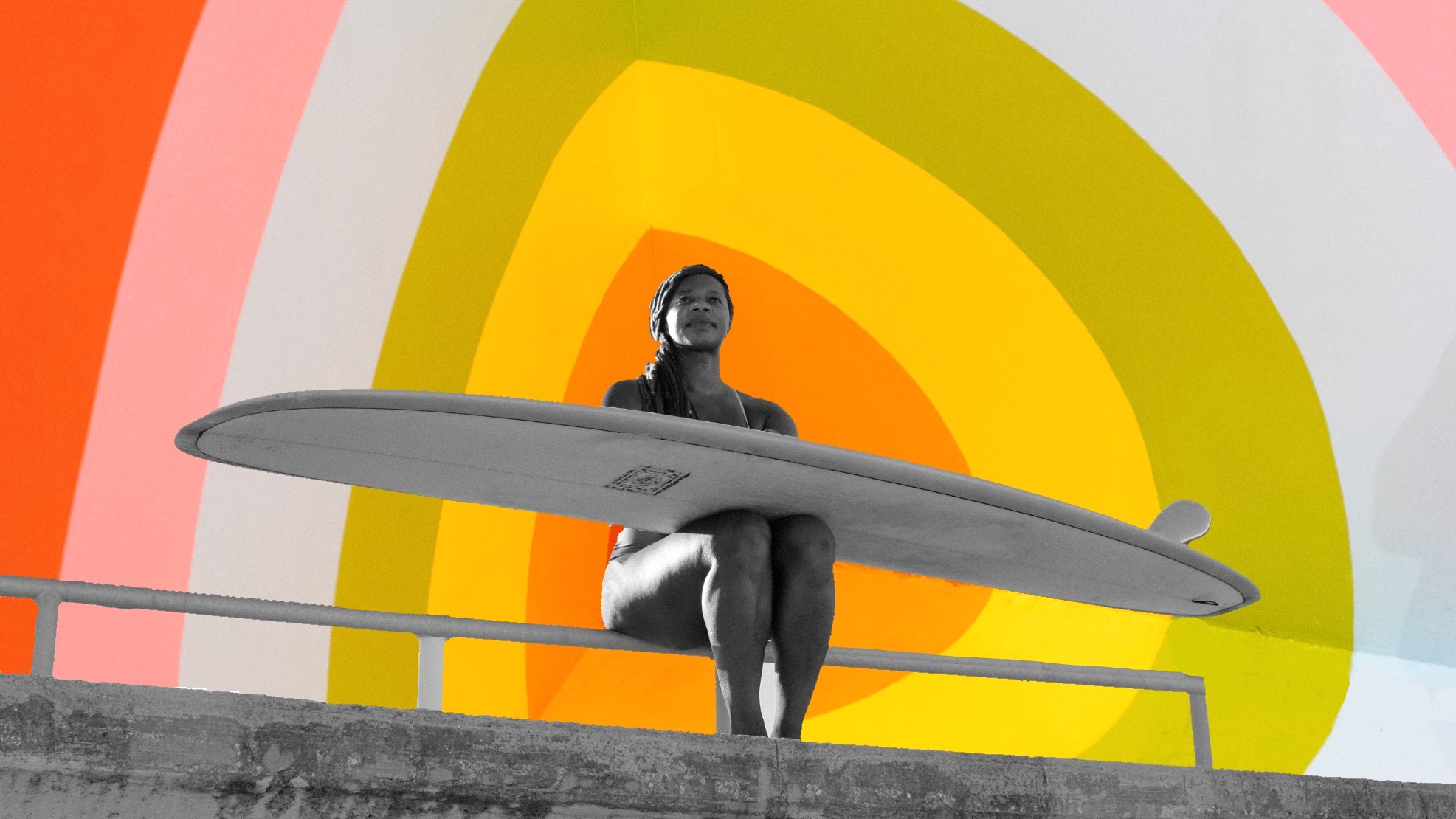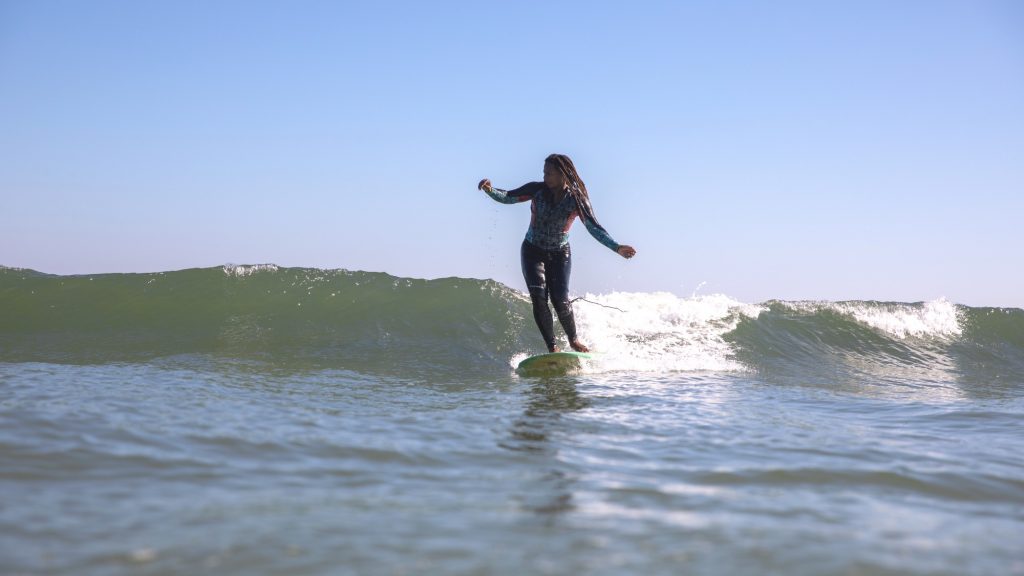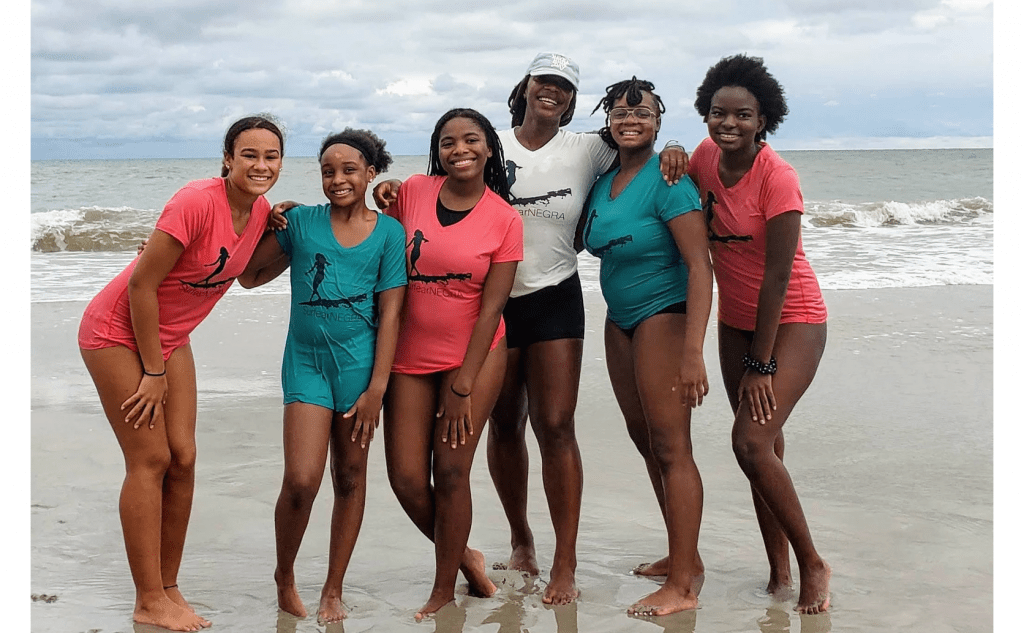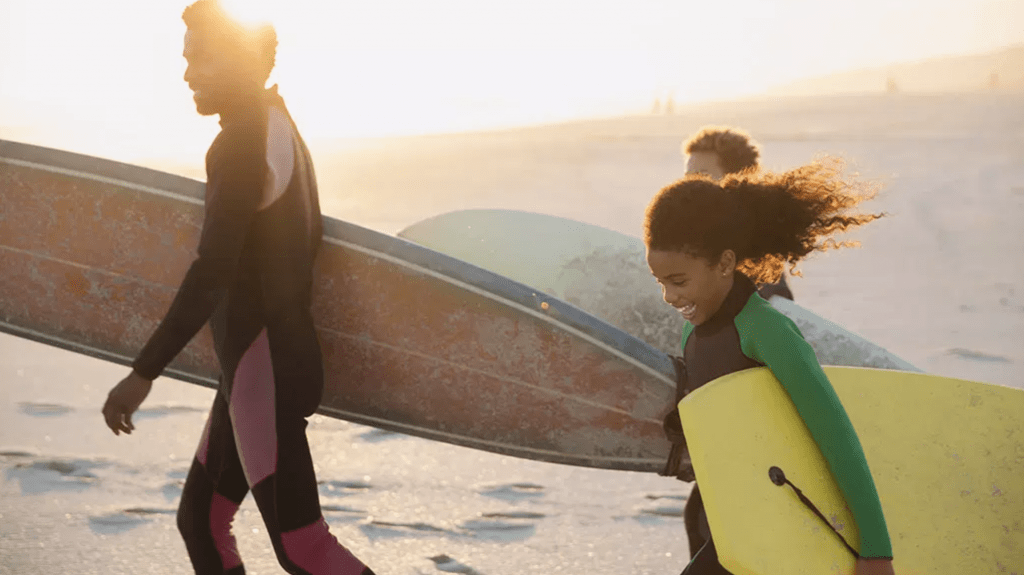Can wave pools help diversify the lineup?

There’s always been a barrier to surfing for persons of color. When beaches ban a specific group of people – until about 1960 in SoCal and 1968 in the Gulf – the result is kids who don’t grow up swimming, going to the beach, or, ultimately, surfing. Most dedicated surfers today learned at a young age, ushered into the fold by a friend or relative already familiar with the beach and culture. But the effects of systematic racism and Jim Crow segregation laws at beaches around the USA means that surfing is and was rarely an option for people of color.
Editor’s Pick: As we close out an amazing 2022 full of growth and innovation within the surf park space, WavePoolMag decided to repost a few of our favorite articles. These are gems that caught the breadth and scope of this amazing little corner of surfing we know and love.
Wave pools will fundamentally change who has access to surfing. Yes, currently there’s a country club vibe for a lot of the developments, but there are also more open access projects in the works in Atlanta, the banlieues of Paris and elsewhere. Further out, it’s not too hard to peer into the future and see a landscape where wave pools sit next to skate parks at the local YMCA and the act of sliding down the face of a wave, is accessible to kids who would never have thought about it before.
Gwenna “Gigi” Lucas founded SurfearNEGRA which runs several programs including one that provides funding for girls of color to attend surf camps in their local communities. We spoke with Gigi to learn how wave pools will bring wave riding to more people in more places, and how that will ultimately make this universe we call surfing, a better place.

Is surfing inclusive?
I began surfing about eight years ago. That’s not a long time. When I first started surfing I would have said “no” it’s not inclusive. But, it’s a product of other societal influences that are not inclusive. And, if you are a person of color and don’t know where to go or how to enter the sport, you just wouldn’t do it.
Fast forward to now, and especially after 2020, there have been a lot of efforts made to be forward-facing or externally facing more inclusive. I still think there’s a lot more work to do in terms of shifting the industry and the ethos with many of the organizations that heavily influence the sport. But yeah, it’s getting there.

Will surfing benefit from a more diverse participant base and can wave pools help that happen?
I think we’re going to start seeing cultures bring their individual personalities to the sport that’s informed by their immediate environment versus what they think a surfer should be because of the media they digest. And it will be a really beautiful thing. I also think we will begin to see more educated and responsible surfers. Because right now there isn’t a lot of direct education and knowledge on things like etiquette, using the right tools per ocean conditions or how to even take care of the ocean if you don’t live in a coastal community.
To have that additional option of a wave pool, we now have a controlled environment where programming can be implemented to teach the fundamentals which can then transfer over to ocean surfing. This will highly benefit those who don’t live near the ocean…which tend to be People of Color as a result of redlining and other systemic issues that create our current reality. Those are just a few examples. I’m sure there will be many more we will discover.
What does it look like as every town USA has a wave pool – as wave pools evolve and replace the YMCA or local skate park, and kids who aren’t part of the coastal elite start to surf, where do you see that going?
SurfearNEGRA’s mission is to make surfing accessible to any kid anywhere. So, we are elated with the increased popularity and development of wave pools because this will help democratize the sport in a way that has never been done before. Especially for kids who are pigeonholed into traditional sports like track and field, football and basketball.
I also think that ready access to wave pools will help deconstruct many of the stigmas and barriers that currently exist with People of Color and swimming. The limited amount of access certain groups have historically had to public waterways and pools unfortunately bred a culture that doesn’t have a relationship with the ocean or water. And, therefore, created generations that don’t swim. It’s not because they can’t swim. They don’t because that’s not the culture. As wave pools become more accessible it will become another incentive for young kids to learn to swim that will, hopefully, also encourage their parents to partake as well.
So how do you see this dynamic shifting?
Most people, when they learn how to surf, are either fortunate to live in an environment where their parents can afford to send them to lessons or they have family members who’ve done it. So they learn by familial knowledge. I think wave pools will provide a structured environment where more people can have access to the knowledge of learning how to surf without having to rely on a family member who already knows the ropes to teach them.
I also think from a bottom-line perspective, pools are going to be incredible for the financial advancement of the surf industry. They bring a new revenue stream to the game that is not exclusively accessible to the existing players in surf. So, I believe we’re going to see some exceptional innovation in the sport over the next decade or so…and not only by the usual suspects.
I’m personally super excited about it.

Let’s fast forward 53 years from now, and there are wave pools everywhere. They’re small ones in most neighborhoods and everyone has access so basically, everyone’s a surfer in the same way everyone can go to a skate park or swim at the YMCA.
Honestly, the first thing that came to mind is that people will be a lot calmer. I truly believe that any time you get any kind of water therapy, especially surfing, it diffuses all anxiety or stress. So I think the more people who get access to something like this, the better.
The second major benefit, in my opinion, is that people will view the world and other people in it differently. When you’re in the ocean, all of the adjectives go away: male, female, black, white, rich, poor, whatever, it goes away because the ocean doesn’t care. The ocean doesn’t care, and you just have to respect it and respect your place in it. And I believe that when people are consistently put in that environment where they’re having to assess themselves against that benchmark, they’ll naturally start to look outward the same way. Because right now, our society is very hung up on using descriptive adjectives to validate self.
Adjectives – like in our Instagram bios…
Yeah, all of it. It’s human nature. Every human wants to feel loved. You want to feel knowledgable and you want to feel respected. And I feel, especially in Western civilization, we think that titles are what brings respect. And it’s actually not. It’s how you treat yourself and how you treat others. That’s what actually brings respect. And that’s what the ocean makes you do. It makes you respect her. And we, surfers, learn this through our craft.
Editor’s Note: This article originally ran on May 17, 2021. As we head into pool season here in the Northern Hemisphere, we thought it was a good time to share it with those readers who might’ve missed Gigi’s insights.
Related Coverage
